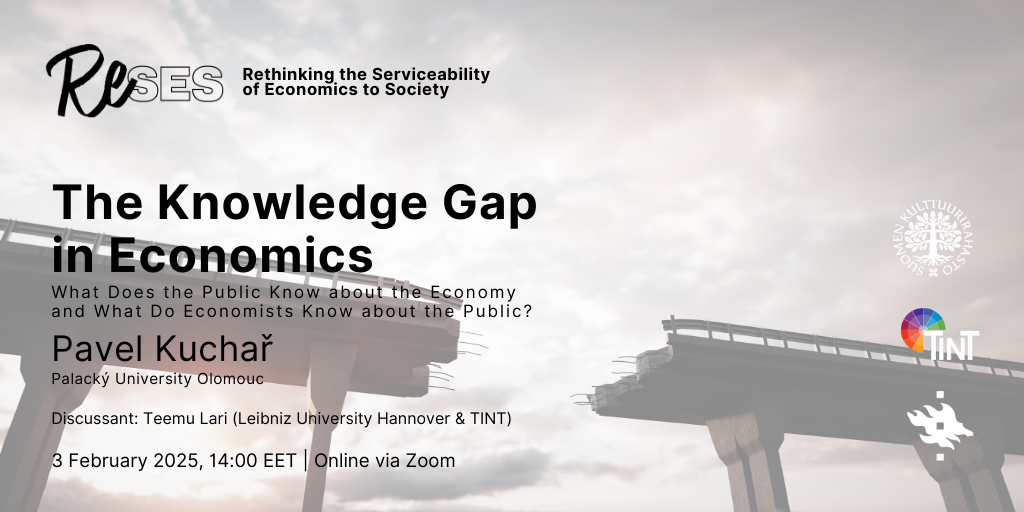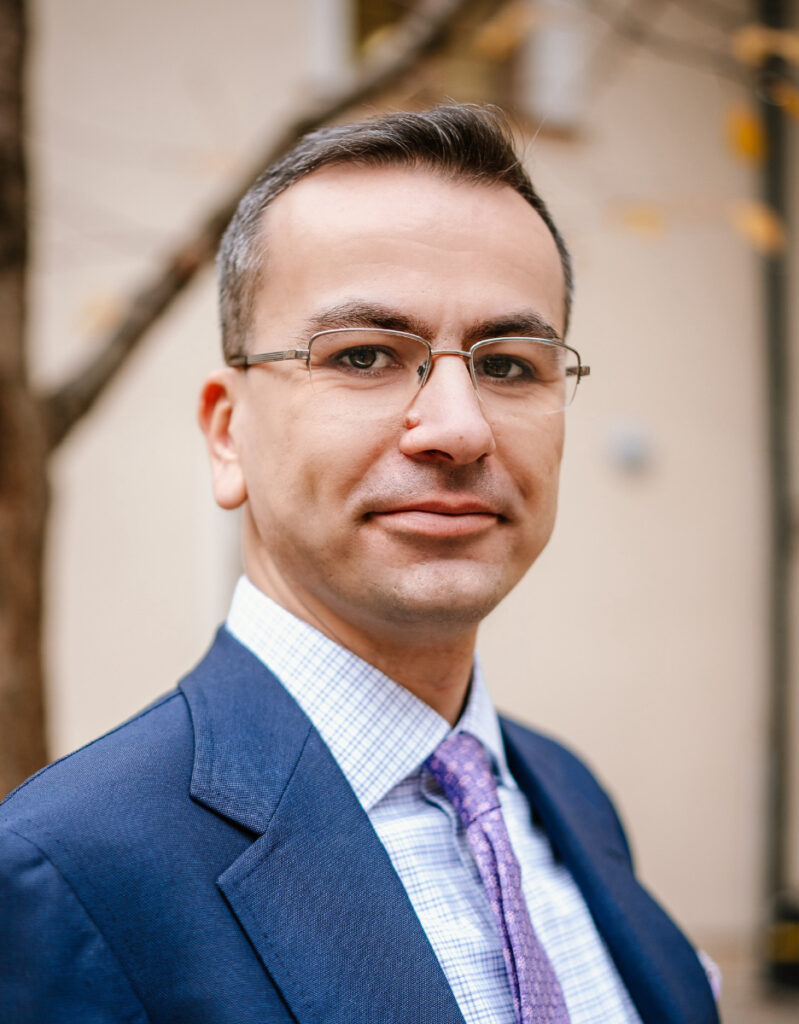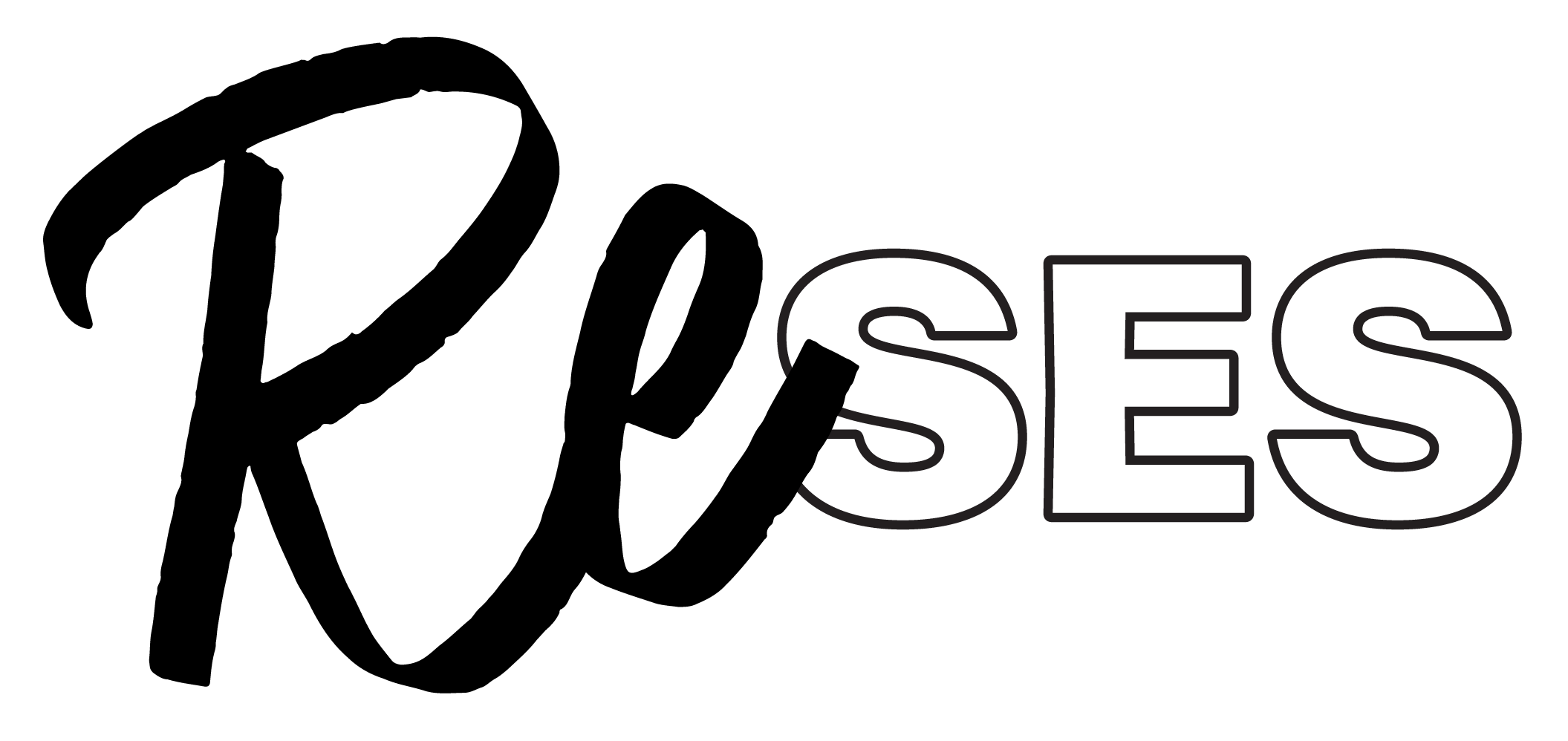
Does the public truly have poor knowledge of the economy, and should economists do more to educate them about it? Is there really an ‘epistemological break’—a divide between what the public knows about the economy and what economists, as experts, understand? Do economists have superior access to economic knowledge, or is the public’s understanding simply different, yet still valuable? If so, perhaps economists need to listen more to the public, rather than assuming superior knowledge. But if that is the case, shouldn’t economists first seek to understand what the public knows?
The role of experts in society is a widely discussed topic. In this ReSES ID seminar, Pavel Kuchař will explore the knowledge gap in economics and examine the role of economic expertise. The talk is based on a recent article titled “The Knowledge Gap in Economics“. A general overview of the discussion can be found in the short essay: “Epistemological break in political economy“.
Teemu Lari (Leibniz University Hannover & TINT), an expert in economic pluralism and expertise, will open the discussion with his commentary.
Abstract of the talk
Economics is characterized by a knowledge gap—a discontinuity between everyday and scientific understandings. An extensive empirical literature proves the so-called economic ignorance of the public. This has contributed to a disdain for the public among economists and provided an argument for more influence of experts. At the same time, many citizens have grown skeptical of scientific expertise, and economic expertise in particular. We question the supposed economic illiteracy of the public by pointing out serious methodological issues with the empirical literature on the economic knowledge of laypeople. Rather than seeking to meet laypeople on their own terms and in their own language, it instead tests their knowledge of (expert) concepts in academic language. More broadly, this literature assumes there is one body of economic knowledge to which some have access and others do not. We argue that economic knowledge is better understood as the multiple heterogeneous bodies of knowledge associated with different communities of practitioners. We argue that economics as a discipline should seek convergence between these bodies of knowledge through translation efforts. We demonstrate that Philip Wicksteed and Elinor Ostrom made efforts to further this convergence and suggest further constructive steps following methodological work in sociology and surveys of public understanding of economics based on interpretivist approaches. We argue that an economics which recognizes these multiple bodies of knowledge, and which aims at convergence, has the potential to improve economics education, foster mutual understanding between economists and the public, and remedy some of the mutual distrust between them.
About the Speaker

Pavel Kuchař is an Assistant Professor at Palacký University Olomouc (Czech Republic). He holds a PhD from the University of Turin (Italy) and has international academic experience in the UK, Mexico, and China. His research focuses on theories of entrepreneurship, economics of institutions, and the history of economics. His work has been published in Public Choice, Journal of Evolutionary Economics, Research in the History of Economic Thought and Methodology, Revue d’Economie Politique, or Oeconomia among others. Pavel is also a co-editor of “Governing Markets as Knowledge Commons” (Cambridge University Press, 2021). He is a Research Fellow at the Centre for the Study of Governance and Society (CSGS) at King’s College London, and a Fellow of the Higher Education Academy.
About the Discussant

Teemu Lari is a philosopher of science specializing in the social and political aspects of research, in particular as they relate to economics. Teemu holds a doctoral degree from the University of Helsinki. His dissertation examined pluralism in economics. His other research interests include values in science, the relationship between expertise and democracy, and the history of economic thought. Teemu is currently working at Leibniz University Hannover, advancing a project on the justification of trust in economic experts in policymaking and the proper role of economists and economics in democratic politics.
About the ReSES Project
The Rethinking the Serviceability of Economics to Society (ReSES) project explores the role and ability of economics in addressing most pressing challenges. It brings together researchers, practitioners, and curious minds to rethink how economic thinking serves—or fails to serve—society.
Join us on February 3 to find out whether the “knowledge gap” matters if economics wishes to serve the society well.
📅 Date: February 3, 2025
🕒 Time: 14:00 (Helsinki time, EET)
📍 Location: Online via Zoom: https://helsinki.zoom.us/j/63663439550?pwd=7j7wO84R0MKP7FPUOLjZfPeUbbhKSH.1
📧 Contact: contact (at) reses-argumenta.fi

About the Host
👋 Hi, I’m N. Emrah Aydinonat , and I’ll be your host for this event! I’m a philosopher of economics at the University of Helsinki and the leader of the ReSES Project. I’m also one of the Chief Editors of the Journal of Economic Methodology. I’m passionate about exploring how economic thinking shapes our world, with a focus on models, institutions and their real-world impact. I look forward to welcoming you to this exciting discussion with Pavel Kuchař and Teemu Lari.


